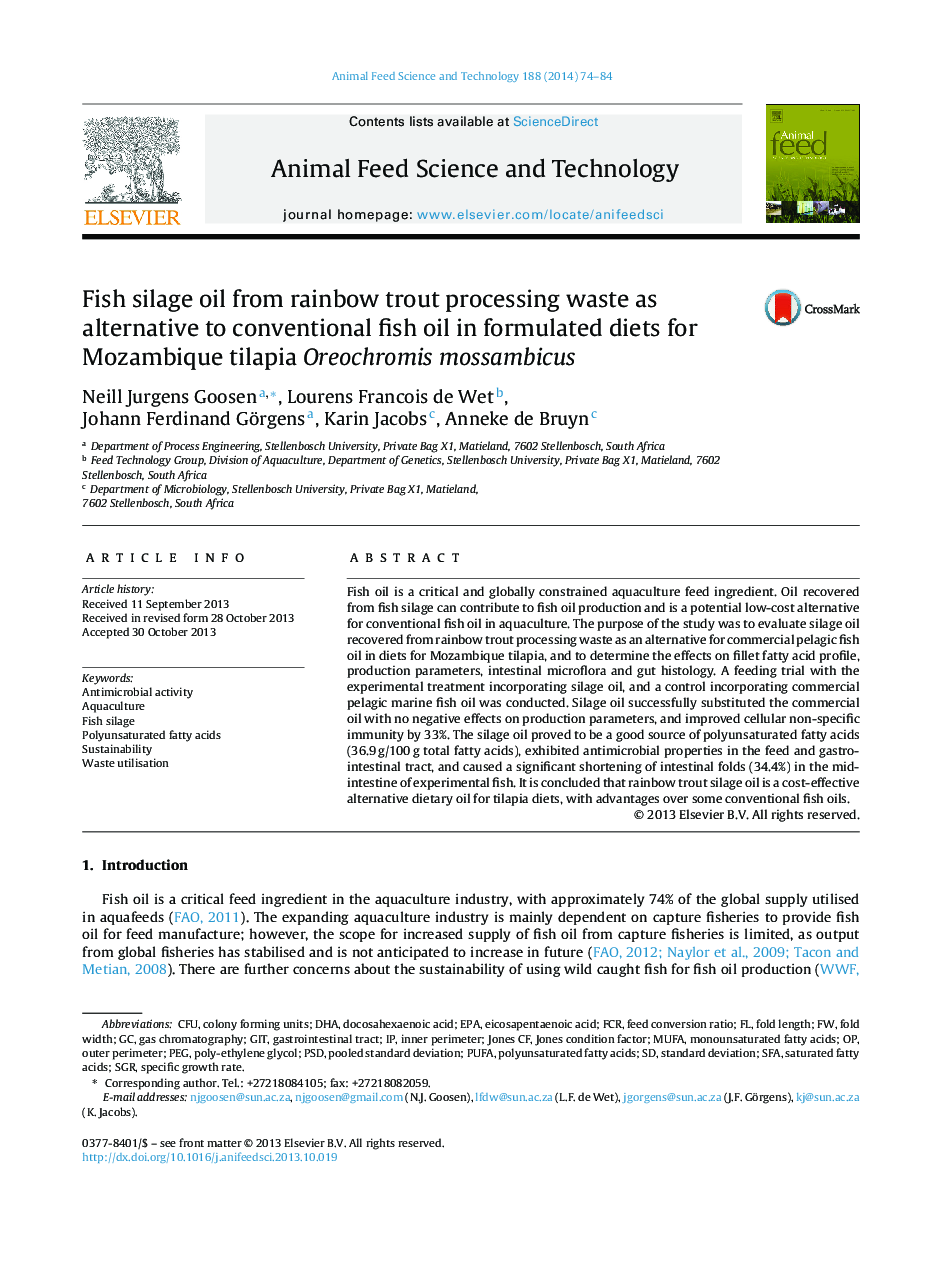| Article ID | Journal | Published Year | Pages | File Type |
|---|---|---|---|---|
| 8491745 | Animal Feed Science and Technology | 2014 | 11 Pages |
Abstract
Fish oil is a critical and globally constrained aquaculture feed ingredient. Oil recovered from fish silage can contribute to fish oil production and is a potential low-cost alternative for conventional fish oil in aquaculture. The purpose of the study was to evaluate silage oil recovered from rainbow trout processing waste as an alternative for commercial pelagic fish oil in diets for Mozambique tilapia, and to determine the effects on fillet fatty acid profile, production parameters, intestinal microflora and gut histology. A feeding trial with the experimental treatment incorporating silage oil, and a control incorporating commercial pelagic marine fish oil was conducted. Silage oil successfully substituted the commercial oil with no negative effects on production parameters, and improved cellular non-specific immunity by 33%. The silage oil proved to be a good source of polyunsaturated fatty acids (36.9Â g/100Â g total fatty acids), exhibited antimicrobial properties in the feed and gastro-intestinal tract, and caused a significant shortening of intestinal folds (34.4%) in the mid-intestine of experimental fish. It is concluded that rainbow trout silage oil is a cost-effective alternative dietary oil for tilapia diets, with advantages over some conventional fish oils.
Keywords
FCREPACFUSGRSFAMUFAGITPSDAquacultureWaste utilisationEicosapentaenoic aciddocosahexaenoic acidPolyunsaturated fatty acidsPUFAsaturated fatty acidsmonounsaturated fatty acidsstandard deviationGastrointestinal tractDHAFish silageAntimicrobial activityspecific growth ratefeed conversion ratiocolony forming unitsSustainabilitypoly-ethylene glycolPEGGas chromatography
Related Topics
Life Sciences
Agricultural and Biological Sciences
Animal Science and Zoology
Authors
Neill Jurgens Goosen, Lourens Francois de Wet, Johann Ferdinand Görgens, Karin Jacobs, Anneke de Bruyn,
